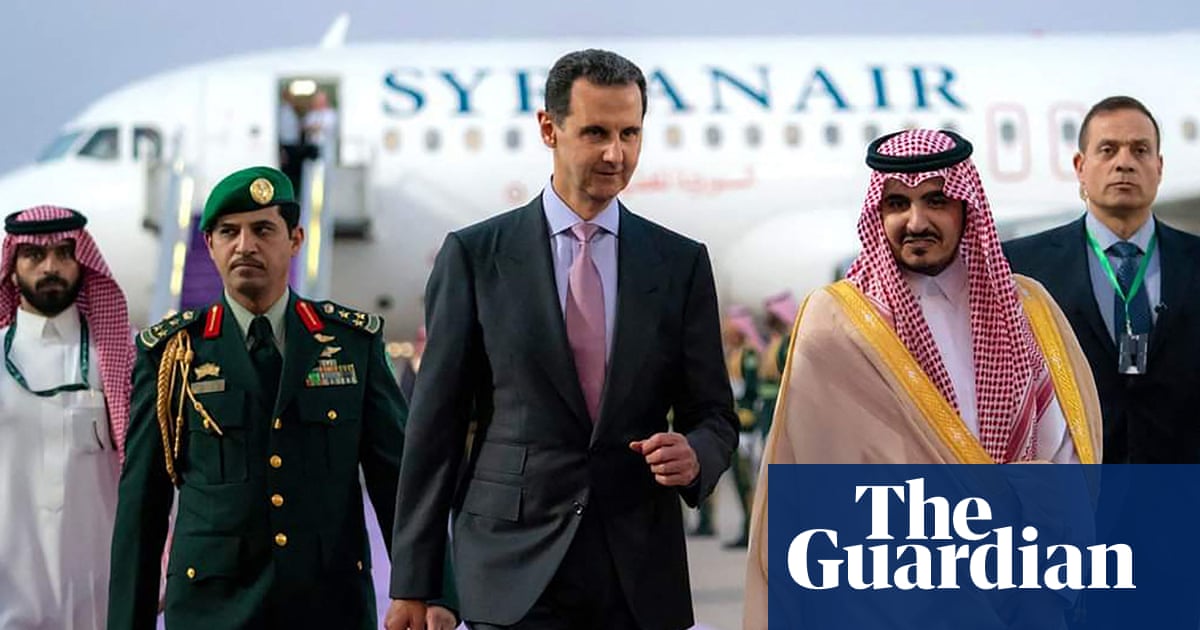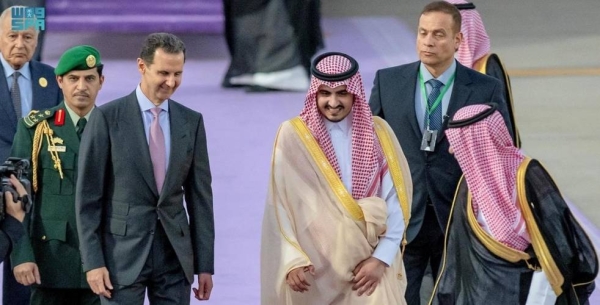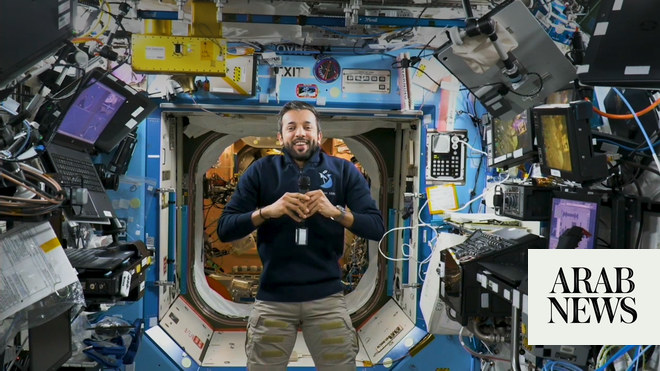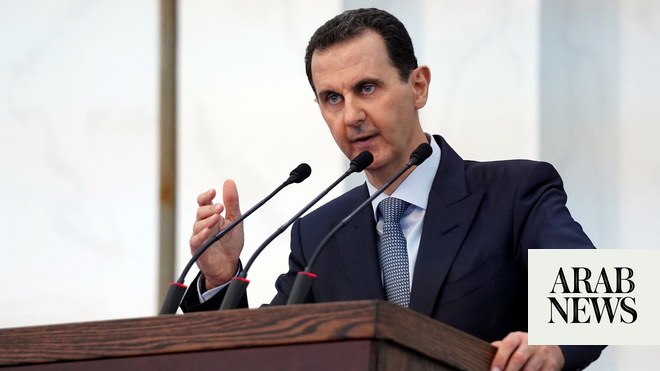
Twelve years after his country was thrown out of the Arab League due to his bloody suppression of pro-democracy protests, Syria’s leader, Bashar al-Assad, has told a summit of the bloc that he hopes his return marks a new phase of peace and prosperity in the region.
A smiling Assad received a warm welcome in the Saudi Arabian city of Jeddah, voicing hope in his first summit speech since 2011 for a new era of Arab cooperation.
Assad’s return to bloc without any preconditions on future treatment of millions of Syrians displaced by civil war marks a turning point in the Middle East, and suggests his endurance and brutality has paid off. His critics say his rule inside Syria remains fragile, with large parts of the north of the country outside his control, and millions of refugees implacably opposed to his rule in the countries surrounding Syria.
“I hope that it marks the beginning of a new phase of Arab action for solidarity among us, for peace in our region, development and prosperity instead of war and destruction,” Assad told the summit. Arab countries, he said, had to take the opportunity to shape their own destiny free of foreign interference, an ironic aspiration given his dependence on Iranian and Russian military support.
Assad’s arrival was marked in the streets of Jeddah, where the Syrian flag was displayed prominently. At the opening family photo smiling he shook hands with and hugged the Saudi crown prince, Mohammed bin Salman, who has been pursuing a policy of regional rapprochement, restoring diplomatic ties with Iran and ending the kingdom’s year-long war against Iran-backed rebels in Yemen.
In his initial meetings, Assad met Saudi officials as well as the increasingly dictatorial Tunisian president, Kais Saied, who is waging his own crackdown on dissent in the birthplace of the Arab spring protests that swept the region in 2011. “We stand together against the movement of darkness,” Assad said, apparently referring to extremist groups that came to dominate the Syrian opposition as his country’s civil war ground on, and which drew a large number of recruits from Tunisia.
Saudi Arabia, following a lead from the United Arab Emirates, has stopped funding or supplying weapons to the Syrian opposition, deciding that their near decade-long efforts to dislodge Assad have failed – a policy that is not being followed by western powers, who are determined to maintain sanctions against the regime.
In a sign some Arab states share the US disapproval of Assad’s rehabilitation, Qatar’s emir, Sheikh Tamim bin Hamad al-Thani, walked out of the summit just before the Syrian president spoke.
It was striking that the emir himself travelled the 800 miles (1,287km) to send the message. The emir did not hold any bilaterals or speak himself at the summit, and, clearly not wanting to damage the sensitive and recently fraught relationship with Saudi Arabia, sent good wishes to his Saudi hosts.
On Wednesday, Lebanon’s foreign minister, Abdallah Bou Habib, said the return of Syrian refugees in Lebanon and the region was among the priorities that the Arab League was working through in coordination with Syria. Bou Habib denied there would be any forced return of displaced Syrians from Lebanon, a key sticking point in talks with the Assad government after its return to the Arab fold.
In a strongly worded statement, the Syrian Opposition Coalition described the inclusion of Assad as a “deplorable endorsement of his heinous crimes against the Syrian people [that] … disregards the sacrifices made by Syrians over the past 12 years, insults the victims who await justice, and abandons the Syrian people who yearn for freedom”.
Although the Arab League is often dismissed as a divided and often pointless talking shop, Riyadh hopes the summit will make progress on ending fighting in Sudan and Yemen.
The recent Chinese-brokered Saudi-Iranian agreement has raised hopes that peace is possible in Yemen, where Iran has been backing the Houthi rebels who have been fighting to dislodge the Saudi-backed, UN-recognised government. It is not clear if Iran will end its support for the Houthis or on what terms.
For different reasons, the most senior leaders of Morocco, Oman, Algeria, Kuwait and the UAE did not attend the summit. The UAE, a stronger backer of the Southern Transitional Front, a group fighting for the independence of southern Yemen, takes a different view to Riyadh on how to end Yemen’s civil war. The UAE said the absence of its president, Sheikh Mohammed bin Zayed Al Nahyan, was due to a prior engagement rather than a diplomatic disagreement.
US politicians are rallying to block the Arab effort to bring Assad back into the international community, taking a somewhat harder line than the US administration has so far.
The surprise guest in Jeddah was the Ukrainian president, Volodymyr Zelenskiy, who arrived wearing his trademark fatigues. He said he wanted to outline his peace plan for Ukraine to the Arab states.
He tweeted on his arrival that his agenda included “political prisoners in Crimea and temporarily occupied territories, the return of our people, peace formula, energy cooperation. KSA [Saudi Arabia] plays a significant role and we are ready to take our cooperation to a new level.”












